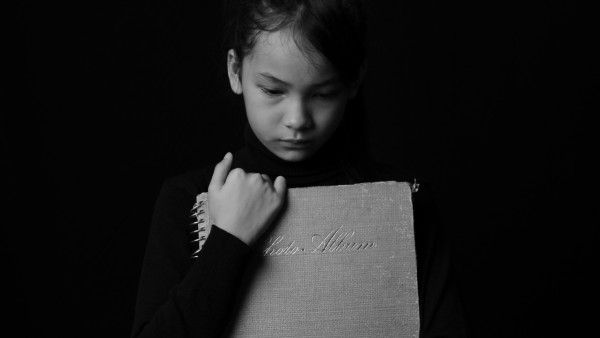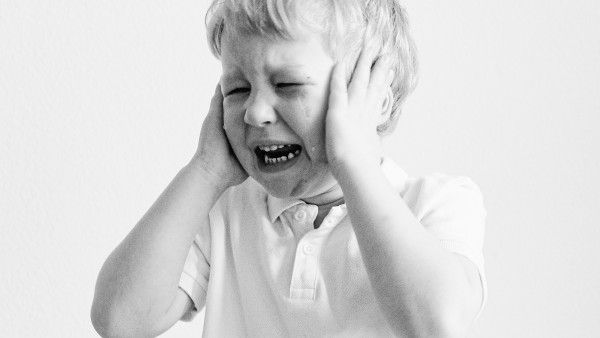Just In
- 4 min ago

- 3 hrs ago

- 10 hrs ago

- 11 hrs ago

Don't Miss
- News
 Chinese President Xi Jinping Orders Biggest Military Reorganisation Since 2015
Chinese President Xi Jinping Orders Biggest Military Reorganisation Since 2015 - Sports
 Today's IPL 2024 Match Highlights, LSG vs CSK: Five Key Points as KL Rahul powers Lucknow to Crucial Victory
Today's IPL 2024 Match Highlights, LSG vs CSK: Five Key Points as KL Rahul powers Lucknow to Crucial Victory - Education
 Exam Pressure Does Not Exist; Studying Punctually is Crucial; Says Aditi, the PSEB 2024 Topper
Exam Pressure Does Not Exist; Studying Punctually is Crucial; Says Aditi, the PSEB 2024 Topper - Movies
 When Karan Johar Revealed Sara Ali Khan And Janhvi Kapoor Once Dated Siblings On KWK 7, Guess Who?
When Karan Johar Revealed Sara Ali Khan And Janhvi Kapoor Once Dated Siblings On KWK 7, Guess Who? - Finance
 Reliance, ONGC, Tata, Adanis: Energy Stocks Didn't Get The Memo Of Bears, Up 12% In 30-Days; 10 Stocks To BUY
Reliance, ONGC, Tata, Adanis: Energy Stocks Didn't Get The Memo Of Bears, Up 12% In 30-Days; 10 Stocks To BUY - Automobiles
 Suzuki Swift Hatchback Scores 4 Star Safety Rating At JNCAP – ADAS, New Engine & More
Suzuki Swift Hatchback Scores 4 Star Safety Rating At JNCAP – ADAS, New Engine & More - Technology
 Dell Introduces AI-Powered Laptops and Mobile Workstations for Enterprises in India
Dell Introduces AI-Powered Laptops and Mobile Workstations for Enterprises in India - Travel
 Journey From Delhi To Ooty: Top Transport Options And Attractions
Journey From Delhi To Ooty: Top Transport Options And Attractions
Can Babies Be Depressed? Causes, Symptoms And Treatment Of Baby Depression (Paediatric Depression)
While it may sound rather questionable and surprising, paediatric depression or baby depression is a real psychological condition. Depression in infants, children and adolescents is a relatively common psychiatric condition that persists into adulthood. Determining whether experiences or biological processes trigger depressive episodes is subject to debate; however, the final common pathway to depression involves biochemical changes in the brain.
This article talks about childhood depression or paediatric depression, including infants, babies and children.

Approximately 2.8 per cent of children younger than 13 years of age suffer from depression [1]. The symptoms of childhood depression are distinct from the normal sadness and everyday feelings that children experience throughout their development. Therefore, children's appearance of sadness does not necessarily indicate that they are depressed.
NOTE: Parenting can be hard when dealing with depression (be it yourself or your child). Because of stigmas associated with mental illness, you might put off getting your child help. However, for your child to grow physically and emotionally healthy, you as the parent must understand depression and the importance of treatment. It is also important to educate yourself about the effects depression may have on your child throughout adolescence and adulthood.

Symptoms Of Depression In Infants And Children
Symptoms of depression in infants and children vary. In many cases, the condition does not receive proper diagnosis and treatment because the symptoms are misdiagnosed as normal emotional and psychological changes. An early focus of medical studies was on "masked" depression. A child's depressed mood was evident by acting out or exhibiting anger [2].
While this does occur, especially in younger children, many children display low moods or sadness similar to those exhibited by depressed adults. The primary symptoms of depression include sadness, a sense of hopelessness, and changes in the mood [3].
Signs and symptoms of depression in children include [4]:
- Anger or crankiness
- A persistent feeling of sadness and hopelessness
- Withdrawal from social activities
- Greater sensitivity to rejection
- A change in appetite, either an increase or decrease
- Sleep disturbances (sleeplessness or excessive sleep)
- Crying or vocal outbursts
- Concentration difficulties
- Low energy and fatigue
- A physical complaint such as stomach-aches and headaches that does not respond to treatment
- Trouble at home or with friends, in school, during extracurricular activities, or with other hobbies or interests
- A feeling of worthlessness or guilt
- Impaired concentration or thinking
- Suicidal thoughts or thoughts of death
Some children do not exhibit all of these symptoms. In truth, most people exhibit different symptoms at different times and in different environments.

Causes Of Depression In Infants And Children
Depression in infants and children can be caused by any combination of factors related to physical health, life events, family history, environment, genetic vulnerability, and biochemical changes. Depressive disorders are not passing moods, nor are they conditions that will disappear without proper treatment [5].
Babies learn a lot about their emotions from those around them, so if a parent suffers from depression, the baby is more likely to develop depression. Children born into poor or abusive households are also at increased risk.

Complications Of Depression In Infants And Children
Despite the fact that some kids may continue to do fairly well in structured environments, most kids with significant depression will suffer a noticeable change in social activities, a loss of interest in school, poor academic performance, or a change in appearance [6]. In addition, children may begin using drugs or alcohol, particularly if they are over 12 years old [7].
In spite of the fact that suicide attempts are relatively uncommon in children under the age of 12, young children do attempt suicide sometimes. They may do so impulsively if they are upset or angry. Suicide risk is higher for children who have experienced violence, alcohol abuse, or physical or sexual abuse in the family and those who suffer from depression.

Diagnosis Of Depression In Infants And Children
According to the Diagnostic Classification of Mental Health and Developmental Disorders of Infancy and Early Childhood (the DC:0-3R), the following five conditions should be met in order for a diagnosis of depression to be made in an infant [8]:
- The child's emotional and behavioural patterns must be different from what is typical for the child.
- The mood must be depressed or irritable every day, for the majority of the day, for at least two weeks.
- A depressive disorder should manifest itself in more than one activity and within more than one relationship.
- There must be symptoms that cause the child distress, impair their functioning, and/or interfere with their development.
- The symptoms must not be caused by a general medical condition, medication, or environmental toxins.

Treatment And Management Of Depression In Infants And Children
Though medications and therapy are not administered to young children, a psychotherapist can work with you to help you understand and meet your baby's needs so they feel secure and safe. Additionally, music therapy and infant massage may prove beneficial in treating depression [9][10].
The following interventions should be considered:
- Cognitive-behavioural therapy (CBT)
- Group psychotherapy
- Pharmacotherapy
- Psychodynamic psychotherapy
- Interpersonal therapy
- Behaviour therapy
- Family therapy
- Supportive psychotherapy
On A Final Note...
Depression is often regarded as an adult problem. However, according to studies, one in 40 infants suffers from depression.
Mental Health Helpline Numbers
1. COOJ Mental Health Foundation (COOJ)- Helpline: 0832-2252525 | 01:00 PM - 07:00 PM (Monday to Friday)
2. Parivarthan- Helpline: +91 7676 602 602 | 10:00 AM to 10:00 PM (Monday to Friday)
3. Connecting Trust- Helpline: +91 992 200 1122 | +91-992 200 4305 | 12:00 PM to 08:00 PM (All days of the week)
4. Roshni Trust- Helpline: 040-66202000, 040-66202001 | 11:00 AM - 09:00 PM (Monday to Sunday)
5. Sahai Helpline: 080-25497777 / Email at - [email protected] | 10 AM- 8 PM (Monday to Saturday)
6. Sumaitri: 011-23389090 / [email protected] |2 PM- 10 PM (Monday To Friday); 10 AM - 10 PM (Saturday and Sunday)
7. Sneha: 044-24640050 (24 HOURS) / 044-24640060 | Email at- [email protected] |8 AM - 10 PM
8. Lifeline: 033-24637401 / 033-24637432 | Email at [email protected] | 10 AM - 6 PM.
- How do I know if my child is depressed?
Signs and symptoms of depression in children include crankiness or anger, continuous feelings of sadness and hopelessness, social withdrawal, being more sensitive to rejection etc.
- Is it possible to prevent depression in children?
Depressive disorders are more likely to affect children with a family history of depression. A child who has parents who suffer from depression may experience depression earlier than a child whose parents do not suffer from depression. A higher risk of depression among children from abusive homes or who abuse substances like alcohol and drugs is also there.
-
 pregnancy parentingIndia's Maternal Mortality Ratio Drops; Healthcare Initiatives A Boon
pregnancy parentingIndia's Maternal Mortality Ratio Drops; Healthcare Initiatives A Boon -
 kids5 Common Infections In Children And What Parents Can Do About It
kids5 Common Infections In Children And What Parents Can Do About It -
 pregnancy parentingJennifer Aniston Talks About Infertility, IVF; Says, 'The Ship Has Sailed'
pregnancy parentingJennifer Aniston Talks About Infertility, IVF; Says, 'The Ship Has Sailed' -
 basicsWorld Fertility Day: The Decline of Fertility Rate In India: What Does It Mean?
basicsWorld Fertility Day: The Decline of Fertility Rate In India: What Does It Mean? -
 basicsExpert Article: Tips For Travelling During Pregnancy This Festive Season
basicsExpert Article: Tips For Travelling During Pregnancy This Festive Season -
 kidsBenefits Of Egg For Babies; What Is The Right Age To Include Eggs In A Baby's Diet?
kidsBenefits Of Egg For Babies; What Is The Right Age To Include Eggs In A Baby's Diet? -
 basicsWhat Are Contraceptive Injections? How Do They Work? Advantages And Disadvantages
basicsWhat Are Contraceptive Injections? How Do They Work? Advantages And Disadvantages -
 basicsKarva Chauth 2022: Is It Safe To Fast During Pregnancy? Dos And Don'ts For Pregnant Women During Karva Chauth
basicsKarva Chauth 2022: Is It Safe To Fast During Pregnancy? Dos And Don'ts For Pregnant Women During Karva Chauth -
 basicsWorld Mental Health Day 2022: Expert Opinion On Impact Of Infertility On A Couple’s Mental Health
basicsWorld Mental Health Day 2022: Expert Opinion On Impact Of Infertility On A Couple’s Mental Health -
 prenatalExpert Article: Getting Ready For Pregnancy At An Advanced Age
prenatalExpert Article: Getting Ready For Pregnancy At An Advanced Age -
 kidsTwin Viral Concerns Of COVID-19 And Monkeypox In Kids: What Parents Should Know
kidsTwin Viral Concerns Of COVID-19 And Monkeypox In Kids: What Parents Should Know -
 kidsWhy Do Kids Get Worms? How To Prevent Worms In Children?
kidsWhy Do Kids Get Worms? How To Prevent Worms In Children?


 Click it and Unblock the Notifications
Click it and Unblock the Notifications



